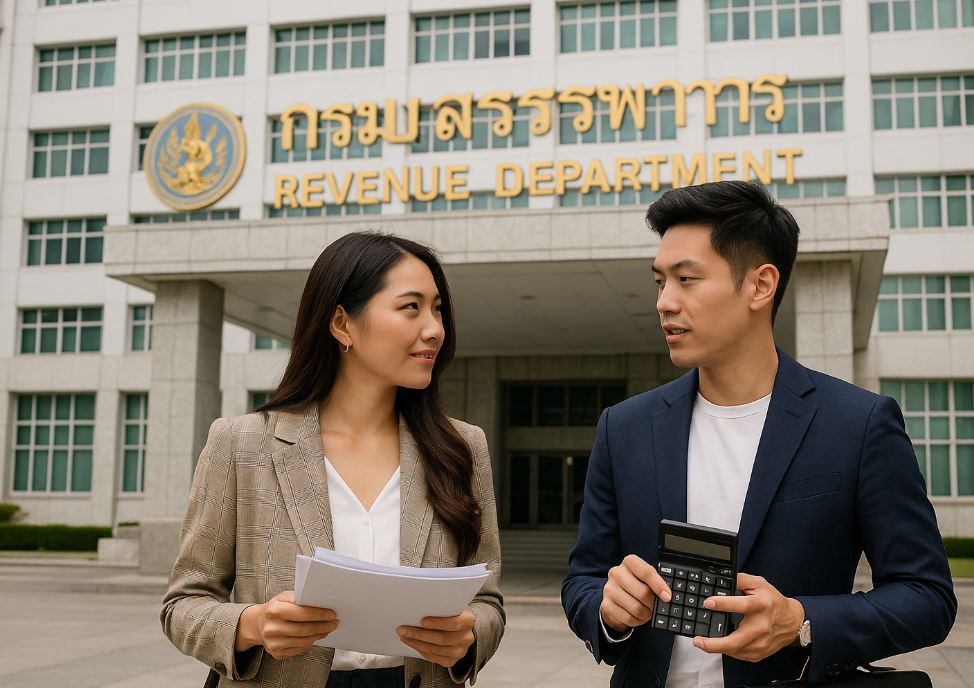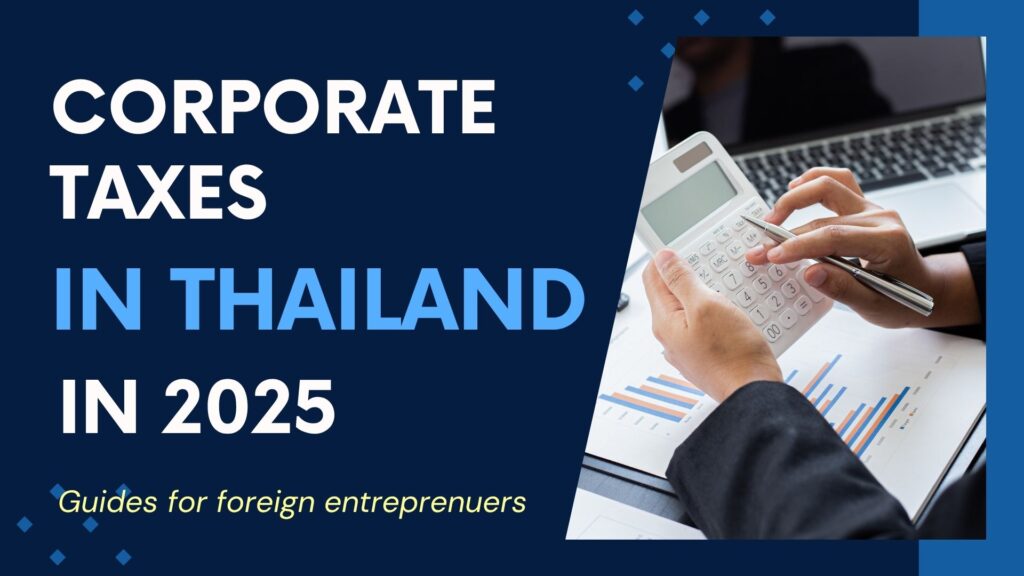Corporate Income Tax in Thailand
Corporate income tax in Thailand is a direct tax levied on legal entities and companies operating and earning income in the country.
In this article, we will look at the key aspects of this tax and its impact on business.

Who is Required to Pay Corporate Income Tax in Thailand?
All legal entities registered or carrying on business in Thailand are required to pay income tax. A legal entity or company is an organization registered under Thai or foreign law that carries on business and earns income in Thailand. The term also includes associations, foundations and other organizations engaged in business.
In other words, Corporate income tax (CIT) in Thailand applies to:
Companies incorporated in Thailand (resident companies)
Foreign companies carrying on business in Thailand
Foreign companies receiving income from Thailand (e.g. service fees, royalties)
If your business is registered in Thailand or earns income from Thai sources, you are likely subject to corporate income tax.
What is the taxable income for businesses in Thailand?
Taxable income for companies in Thailand refers to net profits derived from business operations. This includes all revenue earned from the sale of goods, provision of services, interest, royalties, dividends, rental income, and any other sources of business income — both domestic and, in some cases, foreign-sourced (if repatriated).
To calculate taxable income:
Start with gross income
Subtract allowable business expenses, depreciation, and any tax-deductible costs
The resulting figure is subject to corporate income tax
Non-business or capital gains income may also be taxable, depending on the nature of the transaction.
How to calculate Corporate Income Tax in Thailand
Companies doing business in Thailand are required to calculate corporate income tax based on net profit using the accrual method. This means that companies must account for all income earned during the reporting period and deduct all expenses from it in accordance with the requirements of the Tax Code and the Civil Code of Thailand.
Corporate Income Tax Rates in Thailand
The standard rate in 2025 is 20% of net profit.
However, small and medium-sized enterprises (SMEs) qualify for a reduced progressive rates provided that:
- Their annual revenue does not exceed 30 million THB
- Their registered capital does not exceed 5 million THB
For qualifying SMEs, the tax rates are as follows:
- 0% on the first 300,000 THB of net profit
- 15% on net profit from 300,001 to 3,000,000 THB
- 20% on net profit over 3,000,000 THB
Corporate Income Tax Rates for qualifying SME:
| Net Profit | Tax Rate |
|---|---|
| 0-300 000 THB | 0% |
| 300 000 – 3 000 000 THB | 15% |
| 3 000 000 THB and above | 20% |
Tax Incentives and BOI Promotions
The Board of Investment (BOI) offers tax benefits for companies in promoted industries, such as:
3 to 8 years of tax holidays
Reduced import duties
Permission for 100% foreign ownership
Qualifying for BOI incentives requires prior application and strict compliance with BOI conditions.
Corporate Tax Filing Deadlines
All companies must:
File a half-year corporate tax return (PND 51) within 2 months after the first 6 months of the fiscal year
File the annual tax return (PND 50) within 150 days after the fiscal year-end
Maintain proper financial records and undergo an annual audit
Dividends
Once the net profit is calculated and taxed, the company may decide to pay out dividends to their shareholders. Thailand has 10% tax on dividends which must be paid upon distribution only.
However, dividends can be taxed at lower rates under the provisions of a double tax treaty (DTT).
Tax Deductions and Expenses
Companies can deduct most business-related expenses, including:
Salaries and staff costs
Rent and utilities
Depreciation
Marketing expenses
Travel and entertainment (limited)
Proper documentation is key. Non-compliant or improperly documented expenses may be rejected.
Special Deductions
There are special deductions that companies can use to reduce their taxable income:
- A 200% deduction for research and development expenses.
- A 150% deduction for vocational training expenses.
- A 200% deduction for infrastructure expenses for people with disabilities.
- Interest on loans, excluding interest on capital reserves or company funds.
- Taxes, excluding corporate income tax and value-added tax paid to the Thai government.
- Net losses carried forward from the last five accounting periods.
- Overdue accounts receivable.
- Depreciation and amortization of equipment.
Prepayment of Corporate Tax
Companies are also required to make an advance payment of corporate income tax after six months of operation, which is half of the expected tax amount. This advance payment is an advance tax payment and is recalculated at the end of the year.
In the event of a significant discrepancy between the expected and actual tax amount, additional taxes may be levied. However, complying with tax rules and requirements in Thailand does not pose any major difficulties for entrepreneurs.
With these basics of corporate income tax in Thailand, entrepreneurs can more effectively manage their finances and comply with tax obligations.
How Our Company Can Help
We provide full accounting and tax compliance services, including:
Monthly bookkeeping and VAT filings
Annual financial statements and PND 50/51 filing
Tax planning and optimization
Withholding tax guidance
BOI and FBL compliance assistance

